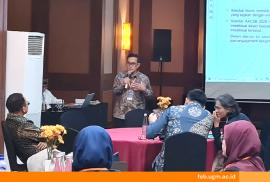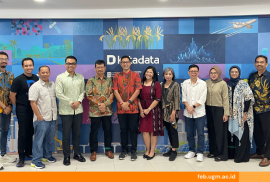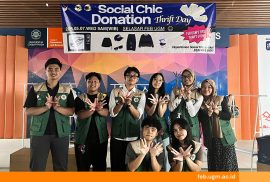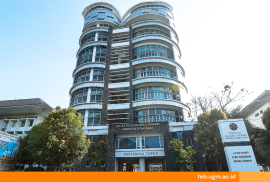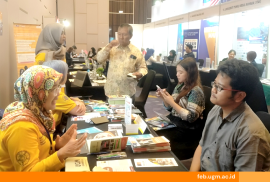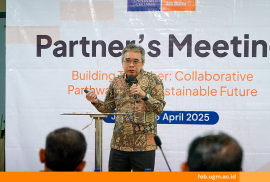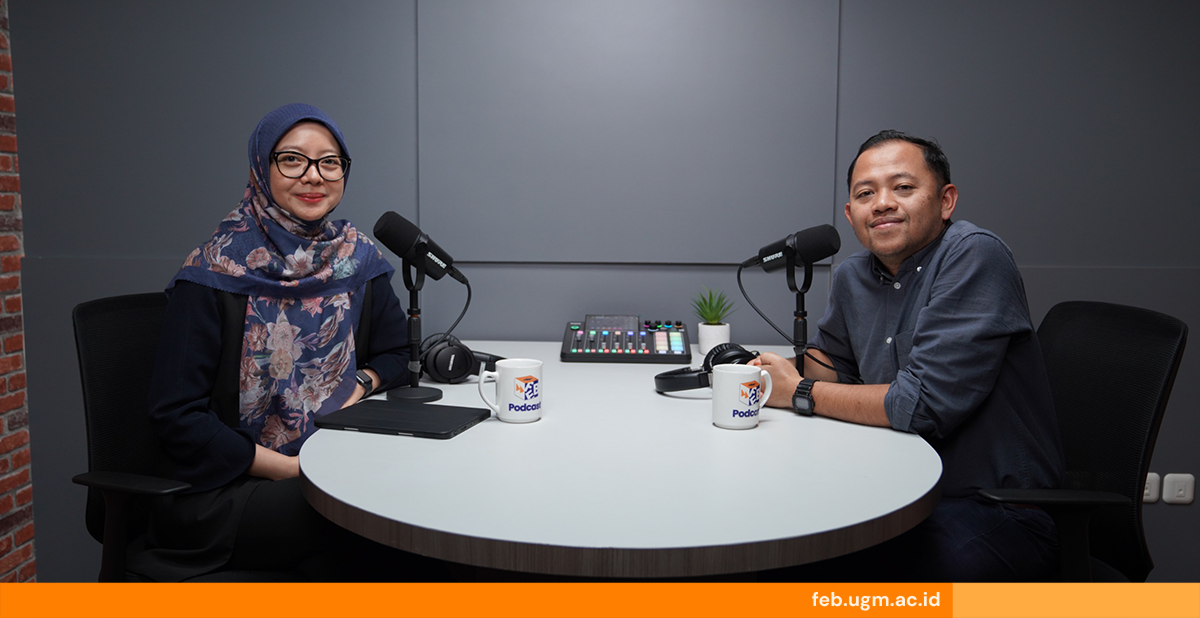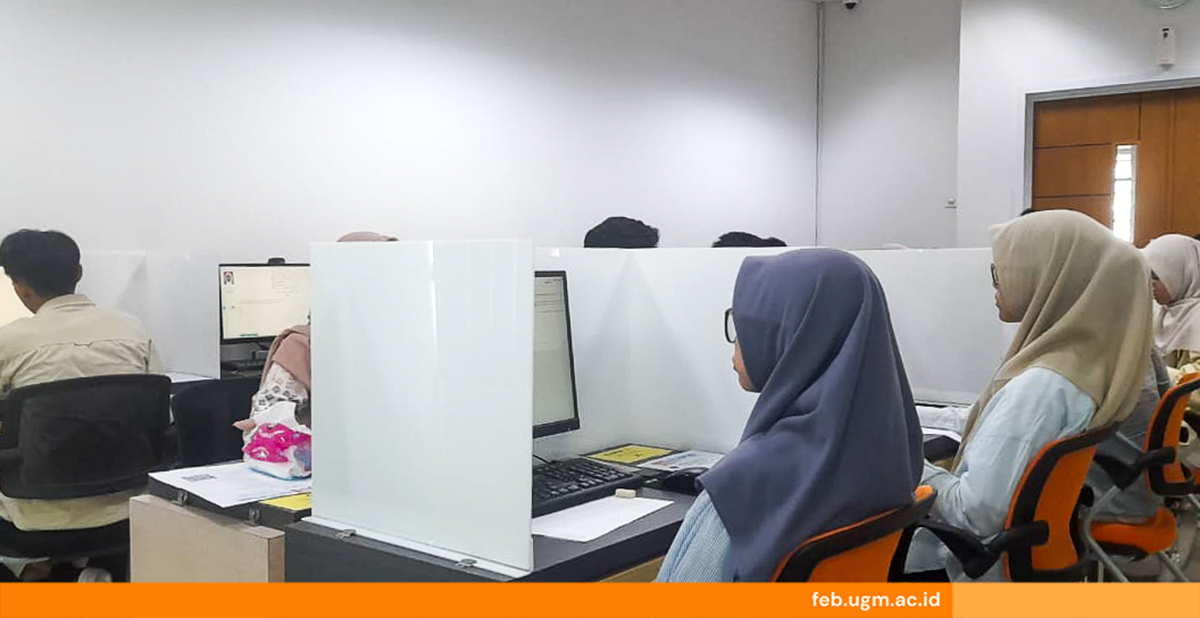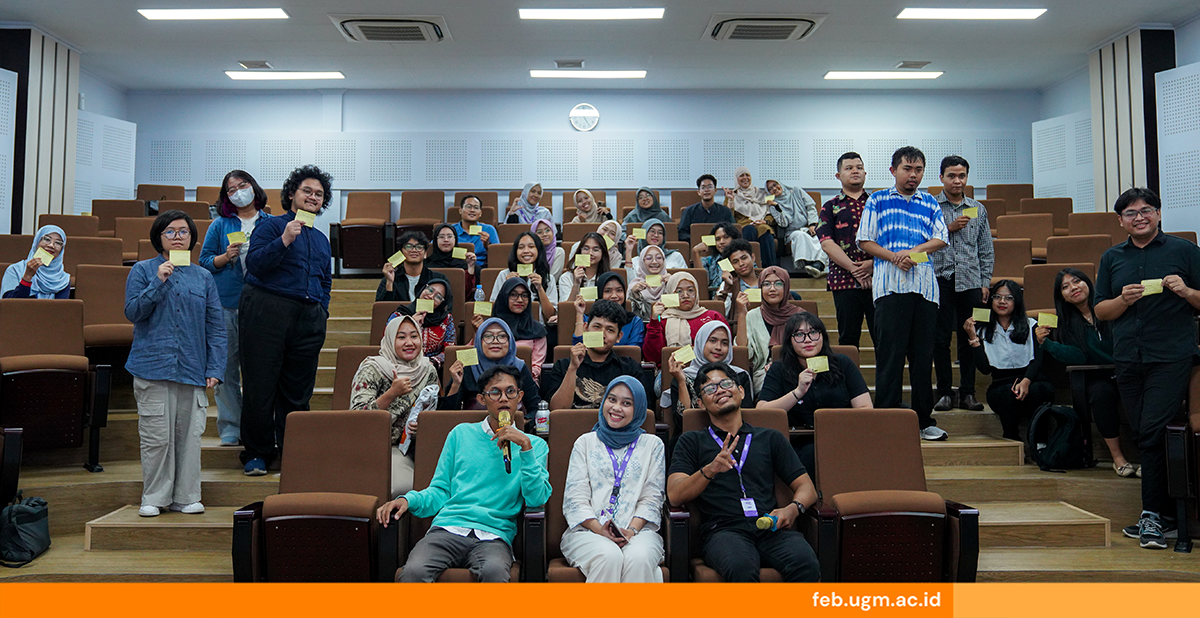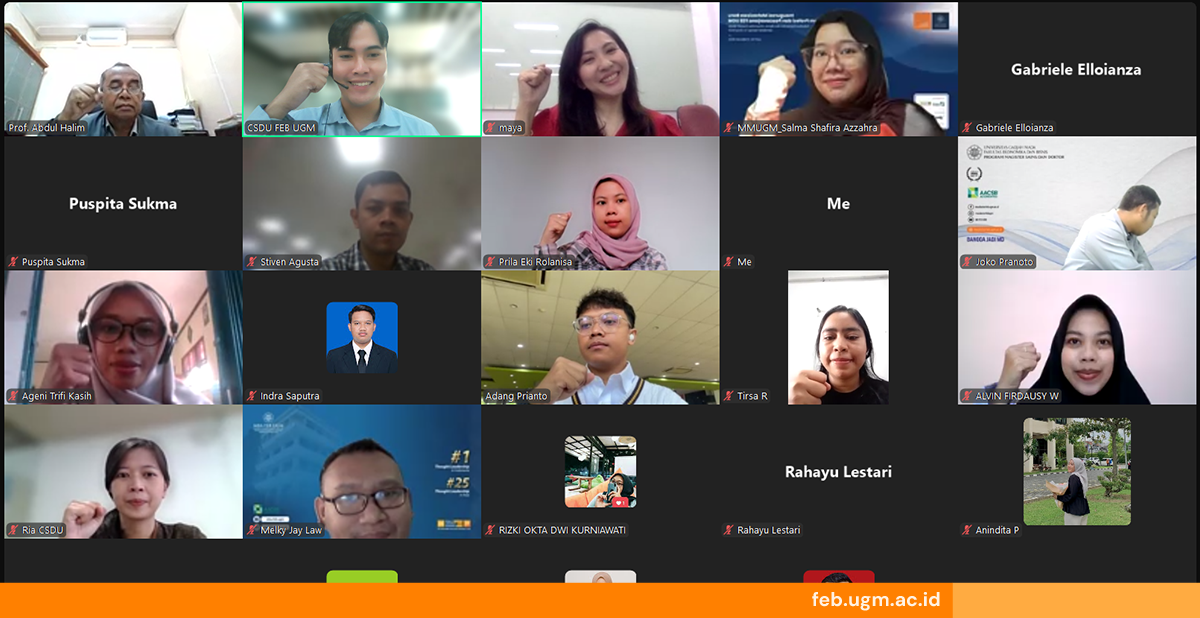The Faculty of Economics and Business, Universitas Gadjah Mada (FEB UGM), reaffirmed its commitment to becoming a catalyst for change through societal impact in higher education for economics and business.
The Faculty of Economics and Business, Universitas Gadjah Mada (FEB UGM) visited Katadata office in South Jakarta on Friday (April 25, 2025) to explore potential strategic collaborations.
The FEB UGM delegation was composed of Gumilang Aryo Sahadewo, Ph.D (Vice Dean for Research, Community Service, Cooperation, and Alumni), Prof. Gugup Kismono (Head of Research, Development, and Societal Impact/RDSI), Sari Sitalaksmi, Ph.D (Deputy Head of Research and Development in Management) and Dian Asmara Djati (Coordinator of Admission, Partnership, and Alumni Administration).
The Department of Social and Community Affairs, Faculty of Economics and Business, Universitas Gadjah Mada (FEB UGM), held the Social Chic Donation as part of its Social Care Donation program on Wednesday (May 7, 2025) at the FEB UGM Hallway.
In higher education, particularly in business schools, quality assurance and accreditation are not formalities.
The Faculty of Economics and Business, Universitas Gadjah Mada (FEB UGM), once again participated in the prestigious World Post Graduate Expo 2025, held on Saturday, May 3, 2025, at the Kempinski Hotel Jakarta and Sunday, May 4, 2025, at The Westin Hotel Surabaya.
This event served as a key moment for FEB UGM to introduce its Master’s and Doctoral programs to prospective students from diverse backgrounds.
The Faculty of Economics and Business Universitas Gadjah Mada (FEB UGM) successfully organized a Partners’ Meeting with the theme “Building Together: Collaborative Pathways to a Sustainable Future” on Friday (April 25, 2025) at the Auditorium Room, 9th Floor, MM FEB UGM Building in Jakarta.
The rapid advancement of artificial intelligence (AI) technology is becoming increasingly inevitable, especially in academia.
A total of 4,160 participants took the Computer Based Written Examination (UTBK) for the National Test-Based Selection (SNBT) 2025 at the Faculty of Economics and Business, Universitas Gadjah Mada (FEB UGM).
FEB Launches ‘Berlayar’ Program to Encourage Students to Share Their Stories and Prioritize Mental Health
FEB UGM is firmly committed to creating an inclusive, welcoming campus ecosystem that prioritizes the mental health of its academic community.
Many recent graduates still face challenges in the job application process, particularly in preparing a compelling resume and navigating the interview process.

